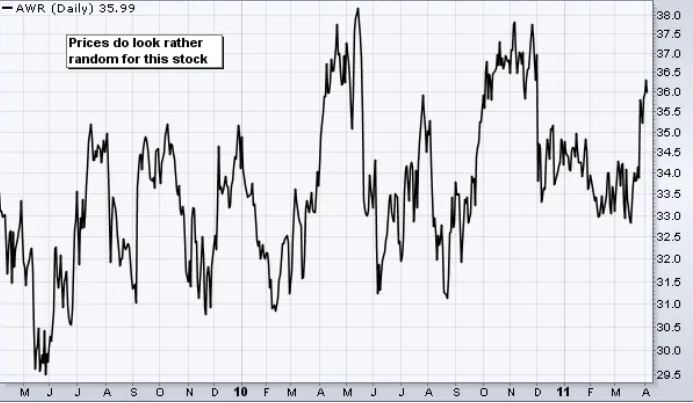Financial models based on random walks assume that the stock market moves unpredictably. Depending on the history of the stock and the price of other securities, the future price may not be affected by its historical movement.
According to random walk theory, stock analysis is considered unreliable, whether technical or fundamental. Let’s explore it further.

Random Walk theory definition
The Random Walk Theory states that the prices of currencies, stocks, or commodities move randomly versus their intrinsic value. According to this theory, an asset’s price incorporates all available information; thus, it is impossible to predict future price movements.
Often, academics and critics dismiss technical analysis as useful for forecasting future market directions based on previous pricing movements. In 1964, Paul Cooner developed this theory based on the hypothesis that current prices are established based on all available information.
There is often a perception of the forex market as the most efficient market. Academics and politicians are baffled by the fact that markets tend to follow waves and not straight lines, which is true for all needs.
A technical analyst uses wave patterns to analyze price behavior in the market according to physical laws governing the conduct of forces in nature.
It is enough for some people to discount Random Walk Theory’s claims about currency trading because technical traders use indicators to provide consistent guidance about profitable entry and exit points.
Studies conducted with supercomputers also completely contradict the Random Walk Theory.
Random walk theory: implications for traders
Random walk theory adherents believe that outperforming the stock market is impossible and would require large amounts of risk. According to the hypothesis, long-term positions will have the best chance of success, so believers tend to take a buy-and-hold strategy.
ETFs and indices track a range of stocks, so they are popular instruments among traders looking to represent the entire stock market.
Efficient markets are random
A random walk theory was coined in 1972 by Burton Malkiel in his book “A Random Walk Down Wall Street.” An earlier theory by William Sharp, professor of economics at the University of Chicago, was popularized in the book.
Assuming all available information and expectations are properly reflected in stock prices, current prices are the most accurate estimate of a company’s intrinsic value. Price movements are largely random and influenced by unforeseen events, so anyone can’t exploit mispriced stocks consistently.
Due to the short-term random nature of returns, Sharp and Malkiel suggested that investors would benefit more from investing in a passively managed, well-diversified fund.
In Malkiel’s controversial book, he theorized that the portfolio selected by a blindfolded monkey throwing darts at a newspaper’s financial pages would do just as well as that chosen by an expert.
Criticisms of random walk theory
In response to random walk theory critics, many argue that careful consideration of entry and exit points can outperform the market – this, however, requires a significant amount of effort, time, and knowledge.
Researching each position you want to open and analyzing the fundamentals and technicals involved will allow you to identify patterns and trends among the chaotic market movements.
Risk management strategies can mitigate the risk of unpredictable market movements, but there is always an element of randomness in market behavior.

Bottom line
The random walk theory suggests that stock prices are independent of each other and have the same distribution.
Using random walk theory, it is inferred that a market or stock’s past performance cannot be predicted. A random walk theory asserts that you cannot outperform the market without taking additional risks. The random walk theory maintains that technical analysis is unreliable because chartists often buy and sell securities only after they have been moved. The random walk theory considers fundamental analysis unreliable because the information is often poorly sourced and misinterpreted. According to random walk theory, an investor’s portfolio does not benefit from investment advisors.


